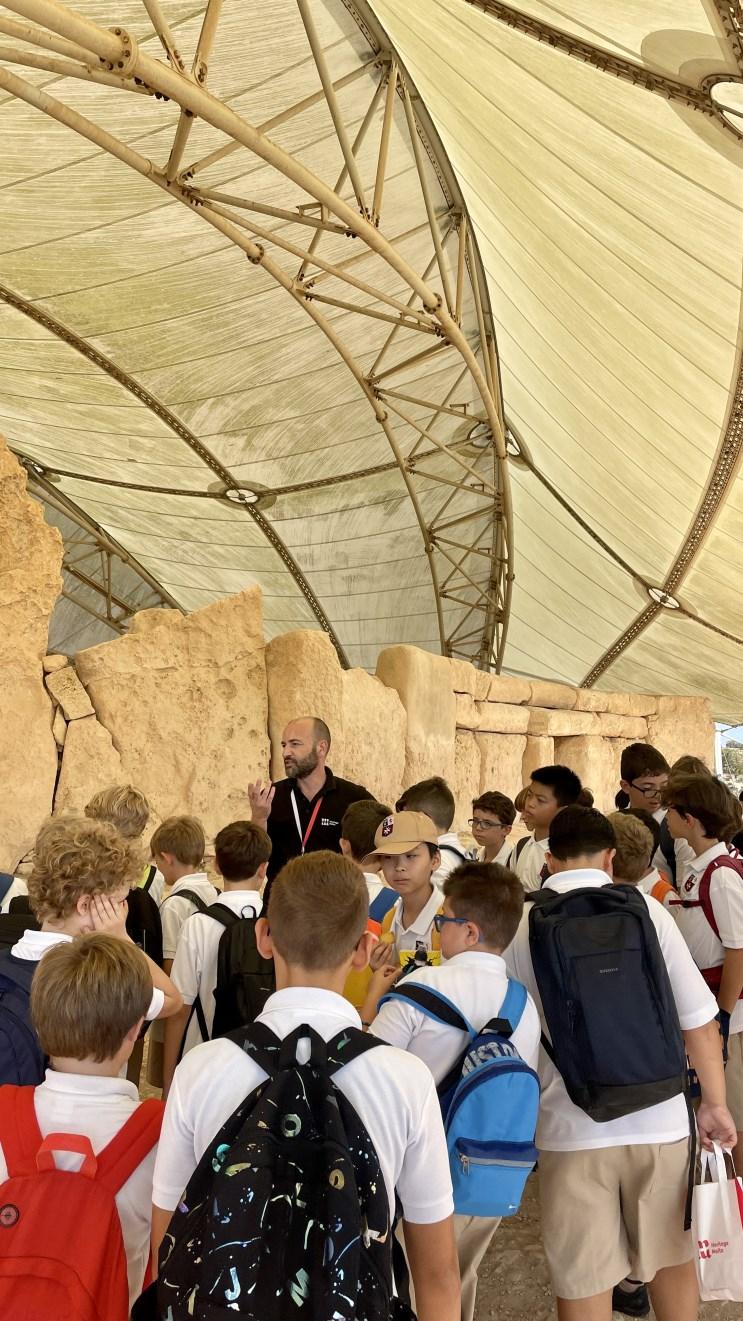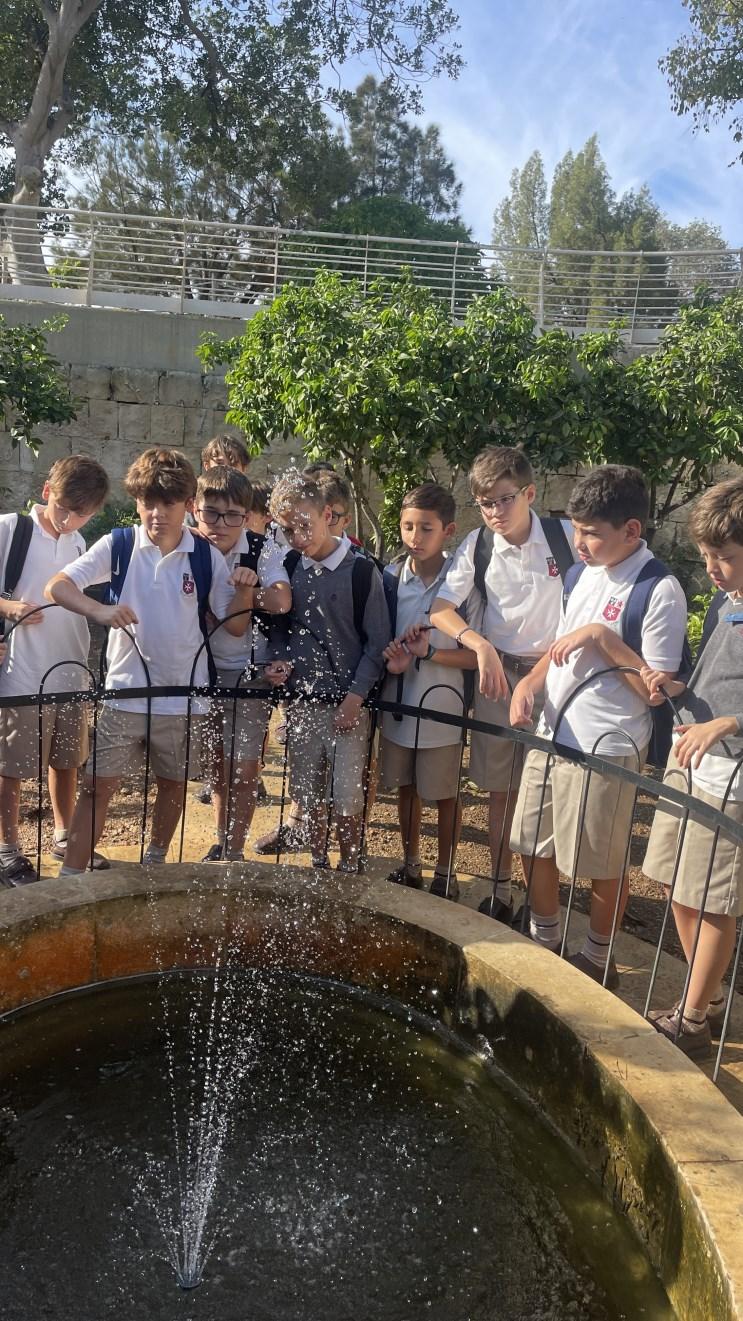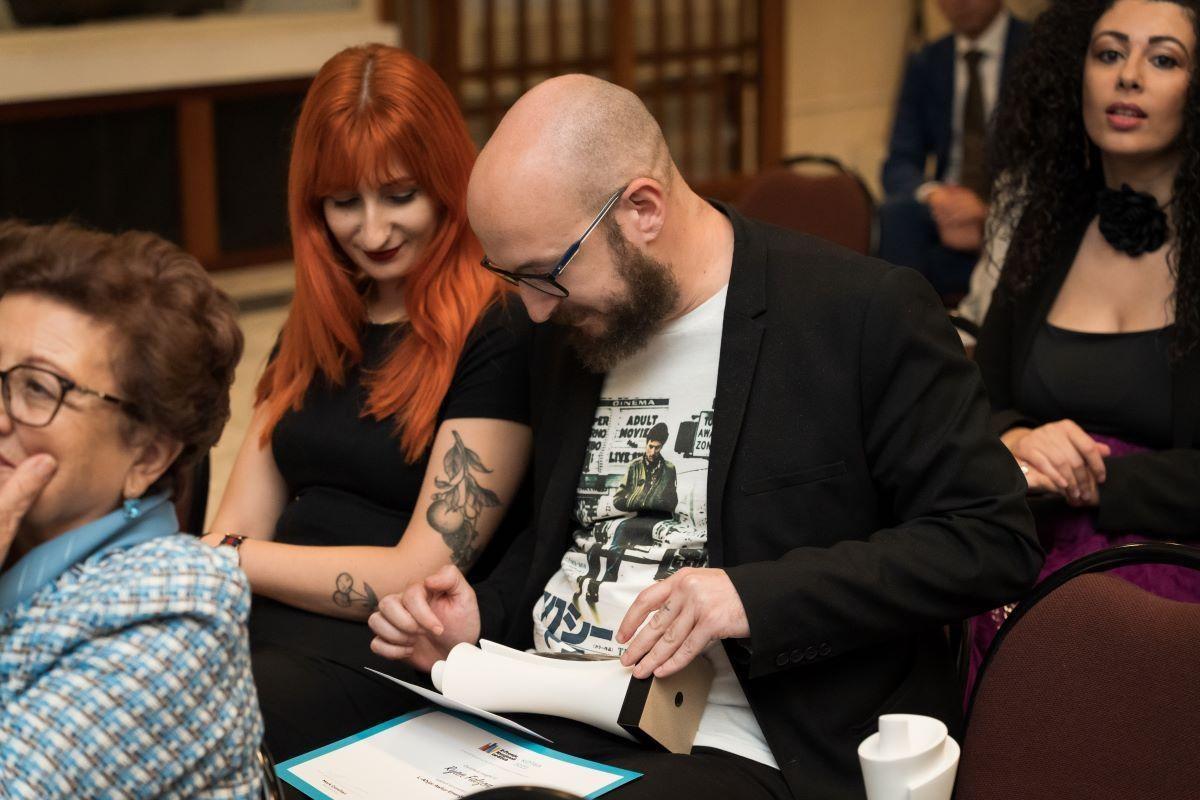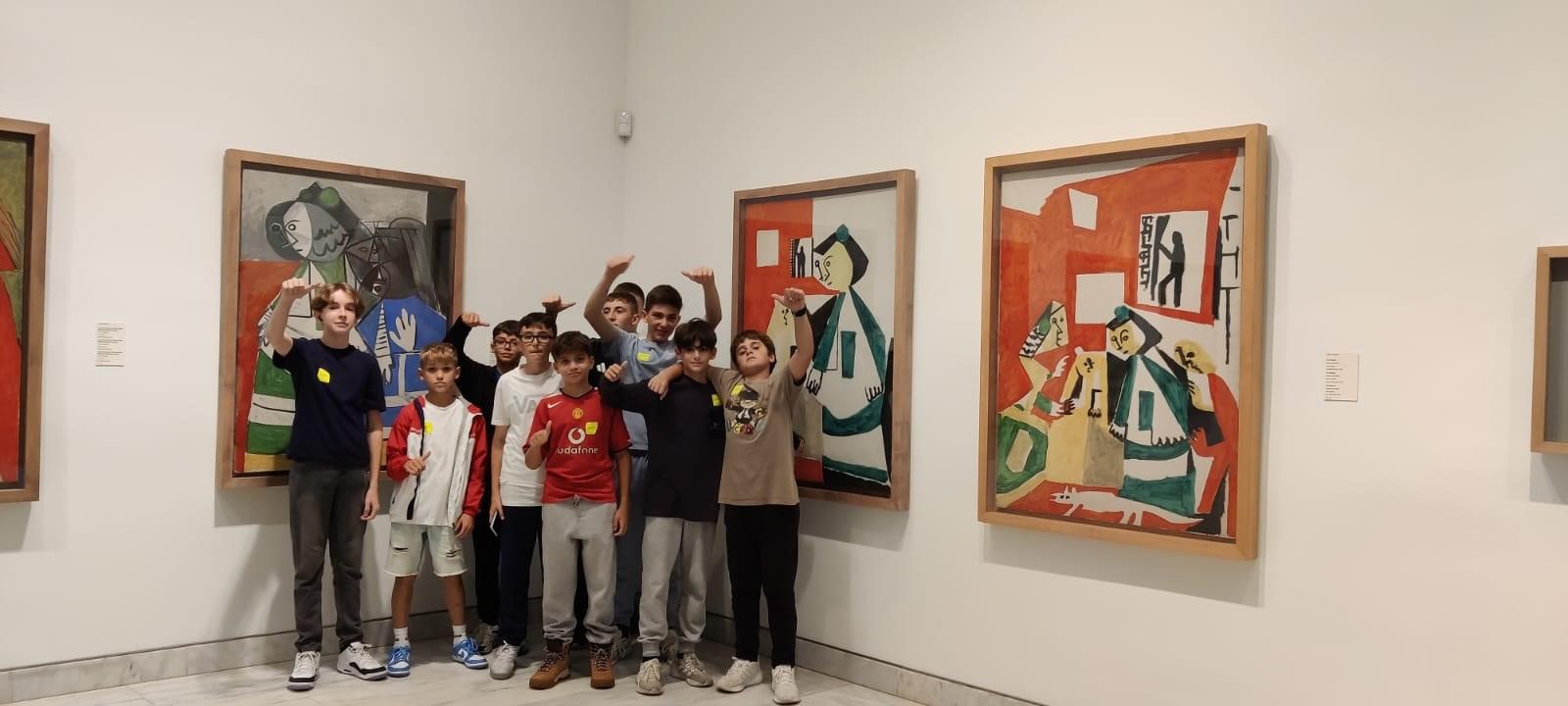

St Edward’s College Announces Historic Move to Full Co-Education
St Edward’s College, one of the oldest and most prestigious independent schools in Malta, is proud to announce a historic milestone: the school will transition to a fully co development marks the next chapter in the school’s long and distinguished history, as St Edward’s consolidates its commitment to providing an inclusive and forward
Founded in 1929 as a boys' boarding school, St Edward's has a legacy of academic excellence, character development, and leadership preparation. Over the years, the College gradually evolved, introducing co International Baccalaureate (IB) levels. The decision to adopt a fully co discussions and research ensuring that the new environment meets the needs of modern families while upholding the school's core values.
The transition will be implemented gradually and incrementally starting from the KG2 cohort and moving together into Year 1 in 2025. This phased approach will allow the College to carefully manage the transition and support the community throughout the process.
Headmaster Mr Nollaig Mac an Bhaird expressed his enthusiasm for the transition “St Edward’s has always been about nurturing the talents of young people and preparing them for the challenges of the future. Moving to a full co model will enrich our learning environment, allowing boys and girls to grow together, collaborate, and learn from one another in a supportive, dynamic community.” He added that the incremental approach would ensure a smooth transition for current and future students alike, maintaining stability and continuity across the school.
For more information about this historic transition or to explore the opportunities at St Edward’s College, visit

Time travel and the wonder of Nature

By Daphne Camilleri

This term, the Year 6 students had the opportunity to bring two of their classroom topics to life through unforgettable outings. First, they explored the ancient wonders of Hagar Qim and Mnajdra Temples, deepening their understanding of history and archaeology. Then, they visited the stunning Argotti Gardens, where they applied their knowledge of plants and ecosystems from our science lessons. Both trips were inspiring, fun, and full of hands-on learning!
A Journey Back in Time: Hagar Qim and Mnajdra Temples
Our first adventure took us to the prehistoric sites of Hagar Qim and Mnajdra Temples, two of Malta’s most impressive ancient structures. Perched on a cliff overlooking the Mediterranean Sea, these temples date back over 5,000 years, making them older than the Egyptian pyramids!
Our guide introduced them to the fascinating history of the temples, explaining that they were likely used for religious or ceremonial purposes. The boys learned about the incredible skill required to construct these buildings, especially considering that the people of the time had no metal tools. The stones are massive, and many were carefully carved with symbols of animals, spirals, and other mysterious shapes. Some of these symbols represent the early belief systems and astronomical alignments, such as those found in Mnajdra, where the sun’s rays align with the temple’s entrance during the equinoxes.
One of the most exciting parts was imagining what life would have been like for the people who built these structures. Walking through the temple remains, the students felt a real connection to Malta’s ancient past. Many of them left with a deeper respect for the ingenuity of early civilizations.

Walking through the temple remains, the students felt a real connection to Malta’s ancient past


Discovering Nature’s Wonders: Argotti Gardens
Our second outing took the boys to Argotti Gardens in Floriana, a hidden gem that’s home to a wide variety of plants, trees, and even some medicinal herbs. The visit tied perfectly into our recent science topic on plant biology and adaptation, and they couldn’t wait to explore this natural oasis.
It all started with a guided tour, during which the guide pointed out different types of plants from around the world. From towering cacti to fragrant herbs and flowering plants, Argotti Gardens is filled with unique specimens. They learned how each plant is adapted to its environment some survive on very little water, while others have evolved to attract specific insects for pollination. This was especially interesting because they had just studied plant adaptations and photosynthesis, so they could connect what they had learned in class to the plants they were seeing. It was amazing to learn that plants have so many hidden properties and play such a vital role in maintaining life on Earth.
Reflecting on Our Outings


Both outings were eye-opening and sparked the boys’ curiosity in unexpected ways. The history trip gave them a glimpse into the incredible achievements of Malta’s earliest inhabitants, while the garden visit deepened their appreciation for nature and the science behind plant life. These trips remind them that learning doesn’t only happen in the classroom it’s all around us, in our history, and in the natural world. The Year 6 students are eager for more adventures, and who knows what they’ll discover next?




This year, we will be keeping up the tradition of having a mass on Christmas Eve. We do not have Midnight Mass as we bear in mind that most families would like to participate in a eucharistic celebration that gives them and their children sufficient time to sleep. So we work some magic on the clock and start mass a bit earlier.
The College Chaplain, Fr E. Camilleri Rodo will be celebration mass, ably assisted by Ms Maria and Miss Blanche. Ms Abigail Brown is ably marshalling the songsters of the college so that we can also have some caroling on this holy night.
As usual, the college grounds will be open for parking and after Mass, those with a sweet tooth can indulge in a seasonal mince pie (or two!) as a pre-Big Day treat!
While it is still early, we would like to wish you all a happy, holy Christmas with your loved ones, near or far. And, as Headmaster always says “Be good to one another, kind to one another”.
MERRY CHRISTMAS AND A HAPPY NEW YEAR TO ALL.
Learning the value of Money
By Louise Mallia

Recently, a representative from the Central Bank of Malta came to College to give an informative presentation on the role and function of the Central Bank of Malta. This included security features and how to spot forged currency. The boys also learnt about the function of the bank within the Eurozone.
The European Central Bank (ECB) is like the money manager for countries in Europe that use the Euro. It helps keep the economy stable by making sure there is just the right amount of money in circulation. The ECB controls interest rates, which affects how much it costs to borrow money. It also helps protect the value of the Euro, so things don't get too expensive or too cheap. The ECB makes sure the banks in Europe work properly, and if they need help, it steps in. Its job is to keep the economy healthy and make sure money is trusted.
A passion for Robotics
By George Lungaro-Mifsud Yr 7Y

Recently I took part in a competition held over the weekend at Montekristo Estate. It was a "Marble-Powered Programming Competition" held during the IEEE Region Robot Championship 2024".
I first got to know about this when we received an email from the school secretary asking whoever is interested in taking part. I thought it would be a good opportunity for me to learn something new and I applied. I had to understand how the game "Turing Tumble " would work, so I googled this and also used an online simulator to help me understand how this works. "Turing Tumble" is a fascinating marblepowered computer where marbles drop through a sequence of configurable plastic pieces, modifying their positions and forming patterns of blue and red marbles in the bottom tray.
Therefore the judges first gave us a board and then gave us challenges where we had to complete the pattern of marbles and find the solutions that they were after. In the end, I placed fourth in this competition. "Turing Tumble" is a great way how to teach maths (especially logic) and computer science concepts.




Keeping quality standards high


By Tracy Bonnici
Recently, the Year 10 Business Studies students had the privilege of welcoming Ms. Malvina Berdufi from Inspectra Ltd, who delivered an insightful talk about quality control and the internal processes within the company. This session was particularly relevant as it directly aligned with the topics we have been covering in class, such as the role of quality assurance, and
world examples of how Inspectra Ltd ensures product quality through rigorous standards and operational efficiency. She emphasized the importance of maintaining strong relationships with customers, highlighted key challenges in production, and demonstrated how these factors contribute to the overall success of a business.
The session not only provided students with practical knowledge but also inspired them to think critically about how these processes are implemented in a real business environment. Students actively participated by asking thoughtful questions, which showcased their understanding and curiosity about the subject matter.
We extend our gratitude to Ms. Berdufi for taking the time to share her expertise and for helping our students bridge the gap between classroom learning and real-world applications.
Saving for a rainy day
By Tracy Bonnici
House!
ĠEMMA is a financial literacy initiative by the Maltese government. Its purpose is to educate the public about managing money, saving for retirement, and improving financial wellbeing. Year 7 and Year 8 students had the opportunity to participate in an engaging session led by ĠEMMA, Malta’s financial literacy initiative. The session focused on essential money management skills, including budgeting, saving, and distinguishing between needs and wants. Through interactive discussions, students learned the importance of making informed financial decisions and setting goals for the future. This valuable initiative aims to equip young people with the knowledge and habits needed for a financially responsible life.
By Naomi DeLorenzo

A School-Based Assessment for Year 7 Geography took place during class, focusing on the locations of 20 Mediterranean countries. The assessment was conducted as an engaging game of "Countries Bingo." Students were divided into teams and tasked with marking the locations of Mediterranean countries on both a bingo card and a map of the Mediterranean. Country names appeared randomly on the board, creating an exciting challenge to see who could complete a 'line' first and eventually achieve a full 'house,' which the students accomplished together!




ulbiena, anyone?






Budding Fair Traders
Drums and Public speaking
O Christmas Tree!

Ryan Falzon’s ‘Sajf’: a millennial voice within Maltese literature
By Emma Borg

“Writing was my first love,” says Ryan Falzon, a name increasingly synonymous with the local art world. Known for his bright, colourful paintings of plants which explore growth and nostalgia, Falzon is not only a celebrated artist but now also an award-winning author. This year, he received the Best Emergent Author prize at the National Book Prize for his debut novel, Sajf
Falzon’s recognition adds his name to a growing list of multidisciplinary artists who have been lauded for their literary talent. Previous winners of the award include Lon Kirkop, a printmaker and songwriter, who won in 2023 with MittElfIsemIeħor, and multimedia artist Matthew Schembri, who was honoured in 2022 for Stessi(2018) and Ħassartek(2021).
“It feels very nice, and the recognition is an important step in one’s professional development,” Falzon said, reflecting on the win. However, he emphasised that awards are never the end goal.
“The focus is on the work itself,” he added.
Sajf , Falzon’s debut novel, captures the millennial and Gen Z experience against the backdrop of a scorching Maltese summer. Vintage cars, excessive drinking and moral ambiguity frame the story, which unfolds
through a first-person narrative.
Readers are drawn into the protagonist’s inner conflicts as they navigate a world marked by blurred lines between right and wrong. Themes of nostalgia, freedom and self-exploration weave through the novel, painting a poignant portrait of a generation caught between a pre-digital past and an ever-evolving future.
Falzon describes his writing style as “punchy,” drawing inspiration from both international and local authors. His literary influences include Hunter S. Thompson, Ernest Hemingway, J.G. Ballard, Richard Rayner and Irvine Welsh.
On the local front, he admires Immanuel Mifsud, Claire Azzopardi, Alex Vella Gera and Juan Mamo. He considers Mamo brilliant and despite having passed away in 1941, in Falzon’s eyes he still has a “punchy” style that resonates till today.
The book has been hailed as the “voice of a generation,” a title Falzon acknowledged the weight of. “Sajfaddressed a void that is or was present in the local scene and the discourse,” he explained. Born in 1988, Falzon considers himself firmly part of the millennial generation, a group he describes as “inbetweeners”.
“We are stuck between the digital and analogue. We are witnesses to a big shift in our immediate environment, which is the island.”
Wearestuckbetweenthedigitalandanalogue.We arewitnessestoabigshiftinourimmediateenvironment,whichistheisland- Ryan Falzon

According to Falzon, no other novel has so strongly defined his generation. He believes millennials in Malta are shaped by a unique tension: deeply influenced by politics and religion while simultaneously rejecting these institutions. At the same time, they’ve been liberated by the internet and low-cost airlines, which have expanded their horizons.
Falzon’s exploration of the millennial mindset began over a decade ago, when he started writing snippets about his generation. However, it wasn’t until the summer of 2020 that he decided to fully commit to the project and give it a proper push.

“When writing it I was concerned and questioning if we could ever enjoy a 2019 summer without the pandemic baggage.”
He said that the subject came to him organically and as more of an afterthought.
Once confident in what he formed, he contacted Glenn Calleja to edit and publish the book.
“Glenn was my first choice of who to work with, and the success of the book should also be attributed to him in part,” Falzon said.
The pair had collaborated on several projects before, and their established rapport made the publishing process seamless. Sajfwas officially published in 2022.
The reception to Sajfhas been overwhelmingly positive. For many, the novel doesn’t just tell a story but holds up a mirror to the complex realities faced by Malta’s younger generations. Despite the novel’s success, Falzon is not ready to put Sajfto rest.
“I would love to keep breathing life into Sajf,” he said, hinting at the possibility of the book reaching international audiences.
Additionally, he revealed that he has been working on a new collection of short stories.
“They’re in the vein of Sajfbut with a fresh perspective,” he said, adding that he hopes to release the collection in the near future.
Through its exploration of identity, nostalgia and the search for meaning to millennials, it has carved a space in Maltese literature that resonates with a generation navigating the complexities of a rapidly changing world.
ReproducedbykindpermissionofTheSundayTimesofMalta
Photos:NathanCamilleri/NationalBookCouncil(Malta)

Ethical trading
By Caterina Passariello
Our Economics students took a virtual journey using the Fairtrade Schools Map! They explored how Fair Trade connects farmers and workers across the globe to ethical trade practices, ensuring fair wages, better working conditions, and sustainable communities. So firstly each of them had some goods and they filled in a sheet. Then they built this map on the wall and presented to the others their products and finding about fair trade
Through this engaging activity, students learned about:
• The real-life impact of Fair Trade on cocoa, coffee, and textile producers.
• How ethical consumer choices can make a difference in global supply chains.
• Inspiring stories of empowerment and sustainability from Fair Trade producers.


A Journey to Barcelona: Culture, Learning, and Adventure
In early November, the Year 9 cohort embarked on an unforgettable trip to the vibrant city of Barcelona, under the guidance of Mr. Javier Formosa and Ms. Samantha Abela. Despite initial forecasts of thunderstorms and flooding, the group was greeted by sunny skies and warm Mediterranean hospitality, setting the perfect backdrop for an immersive five-day cultural adventure. The students settled into a lively hostel that became their cozy sanctuary for the trip. Sharing rooms with bunk beds and private bathrooms fostered camaraderie and added to the fun. Laughter echoed through the corridors together with some yodelling and fantastical stories.
Barcelona’s charm lies in its seamless blend of history, art, and modernity, and the group embraced every aspect of it. From the intricate Gothic Quarter to the playful curves of Art Nouveau buildings, the streets of Barcelona became an open-air museum. The students admired street art, marvelled at the city's eclectic architecture, and absorbed its multicultural vibe. A visit to the Picasso Museum introduced the students to the transformative stages of Pablo Picasso’s art, while the Museum of Modern Art dazzled them with its daring 3D installations. However, the highlight of their artistic exploration was undoubtedly the Sagrada Familia, Antoni Gaudí's architectural masterpiece. Accompanied by a knowledgeable private tour guide, the group delved deep into the story of this iconic basilica. The students learned how Gaudí infused every detail of the structure with profound symbolism. The towering facades, each representing moments from Christ’s life, left them in awe, while the kaleidoscope of light filtering through the stained-glass windows felt almost otherworldly. For many, it was a moment of spiritual and artistic enlightenment, an experience that vividly illustrated the connection between creativity and faith.
Barcelona's Olympic spirit came alive during visits to the 1992 Olympic Stadium and the adjacent Olympic Sports Museum, where the students gained insights into the city’s sporting heritage. A highlight for football fans was a trip to Camp Nou, home of FC Barcelona. The boys relished the interactive exhibits in the FC Barcelona Museum, walked the players’ tunnel, and felt the energy of the pitch where football legends have made history. No trip to Barcelona is complete without indulging in its culinary delights. The students savoured tapas, crispy churros, and other local dishes, experiencing the city’s rich gastronomic culture firsthand. Dining at bustling eateries added to the authenticity of their experience, giving them a taste literally of Spanish life.
In a moment that exemplified the universality of sport, the boys struck up a friendship with a local family during a casual football match. It was a reminder that travel isn’t just about places but people, connections, and shared experiences.

This journey to Barcelona was more than a fun getaway; it was a living classroom. From learning about Gothic art and architecture to understanding modern cultural dynamics, the trip expanded the students’ horizons. Trips like this are invaluable in developing life skills such as independence, teamwork, and cultural empathy. Immersing themselves in a different culture allowed the boys to step outside their comfort zones, enriching their perspectives in ways no textbook could achieve.
As the group returned home with stories to tell and lessons to share, it was evident that Barcelona had left an indelible mark on each of them. This wasn’t just a trip shape their understanding of the world and themselves for years to come.







A time to rest in peace
Safeguarding Minors
As educators, one of our most critical responsibilities is to safeguard minors from inappropriate behavior by adults. This responsibility is rooted in our duty to create safe, nurturing environments where students can grow, learn, and thrive. Inappropriate behavior can range from verbal abuse to physical misconduct, and it can severely impact a child's emotional, psychological, and academic development. Children, due to their vulnerability, may not always recognize or have the ability to report such behavior, making it essential for educators to be vigilant and proactive.
Preventing and responding to inappropriate behavior involves more than just reacting when incidents occur. It requires creating an atmosphere of trust, where students feel safe to speak up, knowing that their concerns will be taken seriously. Educators must also be well-trained in identifying warning signs of abuse, neglect, or exploitation and equipped with the proper protocols to address such issues.
At St Edward’s College, policies and procedures are in place to ensure student safety. These safeguarding policies can be accessed on https://stedwards.edu.mt/ student-support-policy/
Recently, the Old Edwardians Class of 1974 met to celebrate their renewed friendship as well as remember those among them who passed on to a better life. Co-ordinated by Mr Peter Calleja and Mr Julian Sammut, they proposed to the College a small project: three benches, suitably located in the college gardens, where one might quietly recharge one’s batteries. Headmaster Mr Nollaig Mac an Bhaird accepted with alacrity ths touching tribute and three benches were placed in the gardens. The benches bear the names of the late Edwardians :Julian Manduca, Steve Rizzo and Roy Gates and will serve as a lasting memory to these men who will live not only in the annals of the college but now, also in its gardens.

St Edward’s College, Malta
Triq San Dwardu
Birgu BRG 9039
Citta Vittoriosa
Phone: +356 27 88 11 99
Editor: Sylvana Debono
Email: communications@stedwards.edu.mt
Founded in 1929, St Edward’s College is an all-boys college for both day and boarding students. Boarding is offered between the ages of 11 to 18. At nursery and kindergarten as well as at post-secondary level, the college is coeducational. As a private educational college, St Edwards offers excellent teaching facilities, high teacher -pupil ratio, a very wide range of sports facilities and scrupulous personal attention to the students.
At St Edward’s College, students receive a well rounded education ending up in the IB Diploma. Most of the students go on to study at world class universities. Our top students are leaders in society ranging from Science and Business to traditional professions and the arts. Most Edwardians retain a love and appreciation of sports throughout their lives.



